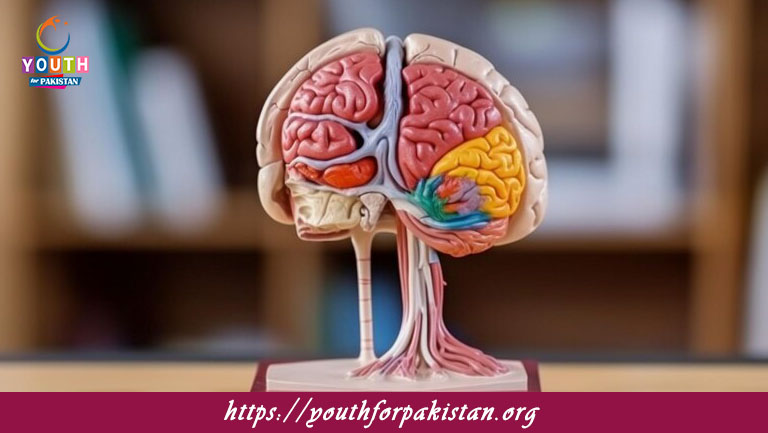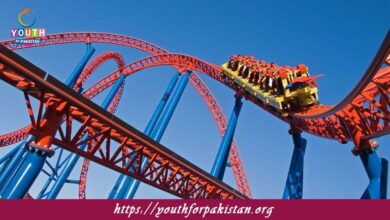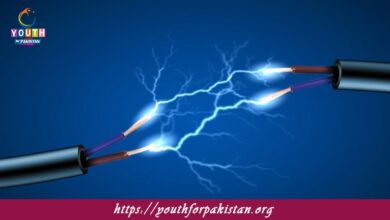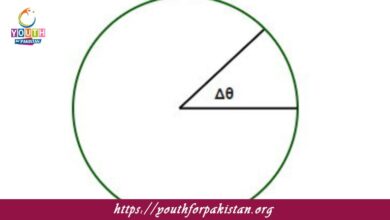Parts Of The Brain With Their Main Functions MDCAT MCQs

Welcome to the Parts Of The Brain With Their Main Functions MDCAT MCQs with Answers. In this post, we have shared Parts Of The Brain With Their Main Functions Multiple Choice Questions and Answers for PMC MDCAT 2024. Each question in MDCAT Biology offers a chance to enhance your knowledge regarding Parts Of The Brain With Their Main Functions MCQs in this MDCAT Online Test.
Which part of the brain is responsible for regulating heart rate and breathing?
a) Cerebellum
b) Medulla oblongata
c) Thalamus
d) Hippocampus
Which brain structure is primarily involved in coordination and balance?
a) Cerebrum
b) Thalamus
c) Cerebellum
d) Pons
The primary sensory relay station of the brain is the:
a) Hypothalamus
b) Pineal gland
c) Thalamus
d) Cerebellum
Which part of the brain is involved in the regulation of body temperature, hunger, and thirst?
a) Medulla oblongata
b) Cerebellum
c) Hypothalamus
d) Pons
Which brain structure is responsible for the production of cerebrospinal fluid (CSF)?
a) Pineal gland
b) Choroid plexus
c) Hippocampus
d) Corpus callosum
Which part of the brain is involved in memory formation and spatial navigation?
a) Hippocampus
b) Medulla oblongata
c) Cerebellum
d) Amygdala
The part of the brain responsible for the integration of sensory information is the:
a) Cerebellum
b) Occipital lobe
c) Parietal lobe
d) Frontal lobe
Which brain region is involved in higher-level cognitive functions such as reasoning and planning?
a) Occipital lobe
b) Temporal lobe
c) Frontal lobe
d) Parietal lobe
The part of the brain responsible for visual processing is the:
a) Parietal lobe
b) Temporal lobe
c) Occipital lobe
d) Frontal lobe
Which part of the brain helps in the coordination of motor movements and the maintenance of posture?
a) Pons
b) Cerebellum
c) Thalamus
d) Hypothalamus
Which part of the brain is known as the “gateway to the cerebral cortex” and relays sensory and motor signals?
a) Pons
b) Thalamus
c) Hypothalamus
d) Corpus callosum
Which structure in the brain is involved in emotional responses and the processing of fear?
a) Hippocampus
b) Amygdala
c) Thalamus
d) Cerebellum
Which part of the brain controls voluntary movements and complex behaviors?
a) Cerebellum
b) Frontal lobe
c) Occipital lobe
d) Parietal lobe
Which brain region is primarily responsible for auditory processing?
a) Occipital lobe
b) Frontal lobe
c) Temporal lobe
d) Parietal lobe
The structure that connects the two hemispheres of the brain is the:
a) Corpus callosum
b) Cerebellum
c) Medulla oblongata
d) Pineal gland
Which part of the brain is involved in regulating sleep-wake cycles?
a) Thalamus
b) Pineal gland
c) Hypothalamus
d) Pons
The part of the brain involved in the control of heart rate and blood pressure is the:
a) Cerebellum
b) Medulla oblongata
c) Hypothalamus
d) Thalamus
Which brain region is important for coordinating the movements of the body and maintaining equilibrium?
a) Pons
b) Thalamus
c) Cerebellum
d) Hippocampus
Which part of the brain is responsible for regulating basic life functions such as breathing and heartbeat?
a) Medulla oblongata
b) Cerebrum
c) Thalamus
d) Hypothalamus
The primary motor cortex is located in which lobe of the brain?
a) Frontal lobe
b) Parietal lobe
c) Temporal lobe
d) Occipital lobe
Which brain part is involved in the regulation of emotional responses and memory?
a) Cerebellum
b) Amygdala
c) Thalamus
d) Corpus callosum
The part of the brain involved in processing sensory input and integrating sensory information is the:
a) Frontal lobe
b) Parietal lobe
c) Occipital lobe
d) Temporal lobe
Which brain structure is responsible for the control of movements and the regulation of posture?
a) Hypothalamus
b) Cerebellum
c) Medulla oblongata
d) Thalamus
Which part of the brain is involved in processing and interpreting visual information?
a) Occipital lobe
b) Temporal lobe
c) Parietal lobe
d) Frontal lobe
The structure responsible for the relay of information between the cerebellum and the cerebrum is the:
a) Medulla oblongata
b) Corpus callosum
c) Pons
d) Hypothalamus
Which part of the brain is involved in the control of automatic functions such as digestion and heart rate?
a) Thalamus
b) Hypothalamus
c) Medulla oblongata
d) Cerebellum
Which brain structure is involved in the regulation of sleep and arousal?
a) Thalamus
b) Hypothalamus
c) Pons
d) Corpus callosum
The part of the brain responsible for processing auditory information is the:
a) Frontal lobe
b) Parietal lobe
c) Occipital lobe
d) Temporal lobe
Which brain structure is crucial for forming new memories?
a) Hippocampus
b) Medulla oblongata
c) Thalamus
d) Cerebellum
The part of the brain that regulates the body’s circadian rhythms is the:
a) Pineal gland
b) Hypothalamus
c) Medulla oblongata
d) Thalamus
Which lobe of the brain is involved in processing touch and temperature sensations?
a) Occipital lobe
b) Frontal lobe
c) Temporal lobe
d) Parietal lobe
The part of the brain responsible for the coordination of complex motor tasks and balance is the:
a) Hippocampus
b) Cerebellum
c) Thalamus
d) Pons
Which brain region controls the body’s homeostatic functions, including temperature regulation?
a) Cerebellum
b) Thalamus
c) Hypothalamus
d) Medulla oblongata
Which part of the brain is primarily responsible for the interpretation of sensory input?
a) Occipital lobe
b) Parietal lobe
c) Frontal lobe
d) Temporal lobe
Which brain part plays a key role in the regulation of emotions and motivation?
a) Medulla oblongata
b) Hippocampus
c) Amygdala
d) Thalamus
Which structure in the brain is responsible for the control of sleep-wake cycles and arousal?
a) Pineal gland
b) Thalamus
c) Pons
d) Hypothalamus
The part of the brain responsible for motor control and speech production is the:
a) Frontal lobe
b) Parietal lobe
c) Temporal lobe
d) Occipital lobe
Which part of the brain is involved in processing and interpreting sensory information from the skin?
a) Parietal lobe
b) Occipital lobe
c) Temporal lobe
d) Frontal lobe
The part of the brain involved in controlling involuntary functions such as breathing is the:
a) Cerebellum
b) Medulla oblongata
c) Thalamus
d) Hippocampus
Which brain structure is responsible for the coordination of sensory information with motor responses?
a) Hippocampus
b) Thalamus
c) Corpus callosum
d) Cerebellum
The brain part that helps in the regulation of the body’s homeostasis and endocrine functions is the:
a) Cerebellum
b) Hypothalamus
c) Pons
d) Medulla oblongata
Which part of the brain is involved in processing visual information from the eyes?
a) Occipital lobe
b) Temporal lobe
c) Frontal lobe
d) Parietal lobe
The part of the brain involved in regulating motor functions and balance is the:
a) Thalamus
b) Cerebellum
c) Hippocampus
d) Medulla oblongata
Which brain structure is crucial for controlling voluntary movements and planning complex activities?
a) Hypothalamus
b) Frontal lobe
c) Temporal lobe
d) Parietal lobe
The part of the brain responsible for the coordination of complex motor functions and balance is the:
a) Cerebellum
b) Medulla oblongata
c) Thalamus
d) Hippocampus
Which brain structure regulates the sleep-wake cycle and is involved in circadian rhythms?
a) Hypothalamus
b) Pineal gland
c) Pons
d) Thalamus
If you are interested to enhance your knowledge regarding Physics, Chemistry, Computer, and Biology please click on the link of each category, you will be redirected to dedicated website for each category.





